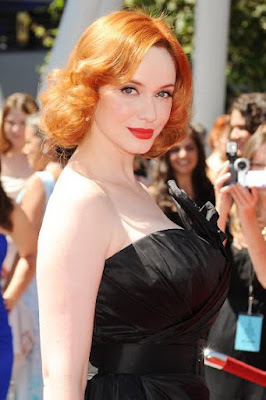Annamaria on Monday
I have been thinking lately, a lot, about dialogue in historical novels. Words, their usage, and that their meanings change over time. How can/should a writer make the right choices?
My criteria are always aimed at keeping the reader in the story. In other words, I want to make sure I don't do anything that will force the reader to think about a word choice, rather than vicariously experiencing what my characters are going through. This means that the words should not call attention to themselves or heaven-forbid send the reader to a dictionary. (She might go, but she might not come back!)
Period vocabulary, though, also can be tricky, since language changes over time.
Some words just go out of fashion, for reasons incomprehensible or obscure.
"Passé" describes such a word, and is such a word. "Oldfangled" falls in to the passé category.
"Becoming" used to be a way to complement a woman how she looks in her clothng. As in, "That dress is so becoming."
More people are wearing jeans than ever, if we are to believe the latest news report that I heard. But nobody calls them what they were called when they first came into fashion: "dungarees."
Similarly, women still have them, but nobody calls them a bosom anymore.
And it still rains. But nobody is reminded to wear their galoshes
"Kaffeeklatsch" used to be an afternoon activity for housewives.
Which brings us to category two. As mores and customs change, our vocabulary changes with them. We don't have housewives anymore, we have stay-at-home moms!
Of course the main reason words go in and out of usage has to do with changes in technology.
Some of us still say "roll down the window" even though we push a button to do it.
Do you still "hang up" when you're finished with a telephone call?
As far as listening to music is concerned, we have gone from the Victrola:
To the record player:
To the stereo:
to the sound system:
Strange to say, some words persist, even if the thing they describe has absolutely no resemblance to the word's first meaning. For instance, we still call them "Films" and speak of "footage," though making a movie no longer involves "film."
My favorite in this regard is the word "dashboard." It originally described a board that protected the person driving a horse and carriage from mud "dashed up" by the horse's hooves.
A dashboard, since the invention of the automobile, has looked something like this:
For writers of historical fiction, the challenge is to decide what vocabulary to use.
If I were writing a romance that takes place in the 1950s and, without forethought, said that the couple was "going steady," how would a 21st-century reader understand my phraseology. Today's readers, who live in a time when people seeking sexual satisfaction "hook up" using a dating app called "Tinder," might not understand exactly what the couple are doing. Or, more to the point, not doing.

































Very interesting, Annamaria. As I was reading, my first thought was, well, I'd understand all the words in your first category (except "kaffeeklatsch", but then I'm a male and I could probably guess it anyway).My second thought was, yes, but I'm from that era myself! What about younger readers? I would find it beautifully sets the period, but what would they think? I hope in a future blog you'll tell us how you answer some of these questions.
ReplyDeleteThank you so much, Michael. I will try to explain more about this endlessly challenging topic in a future blog. One of the things that’s on my mind this morning is that the period of my childhood is now considered within the precincts of historical fiction.
ReplyDeleteI also love this topic so please continue this discussion in a future blog!
ReplyDeleteThank you, Jackie! I am so pleased to find a kindred spirit in you. Stay tuned, I say, to bring up another leftover from radio days. 🙃
DeleteSounds to me as if "Tinder is the knight" might just be this generation's rendition of "Tender is the night."
ReplyDelete